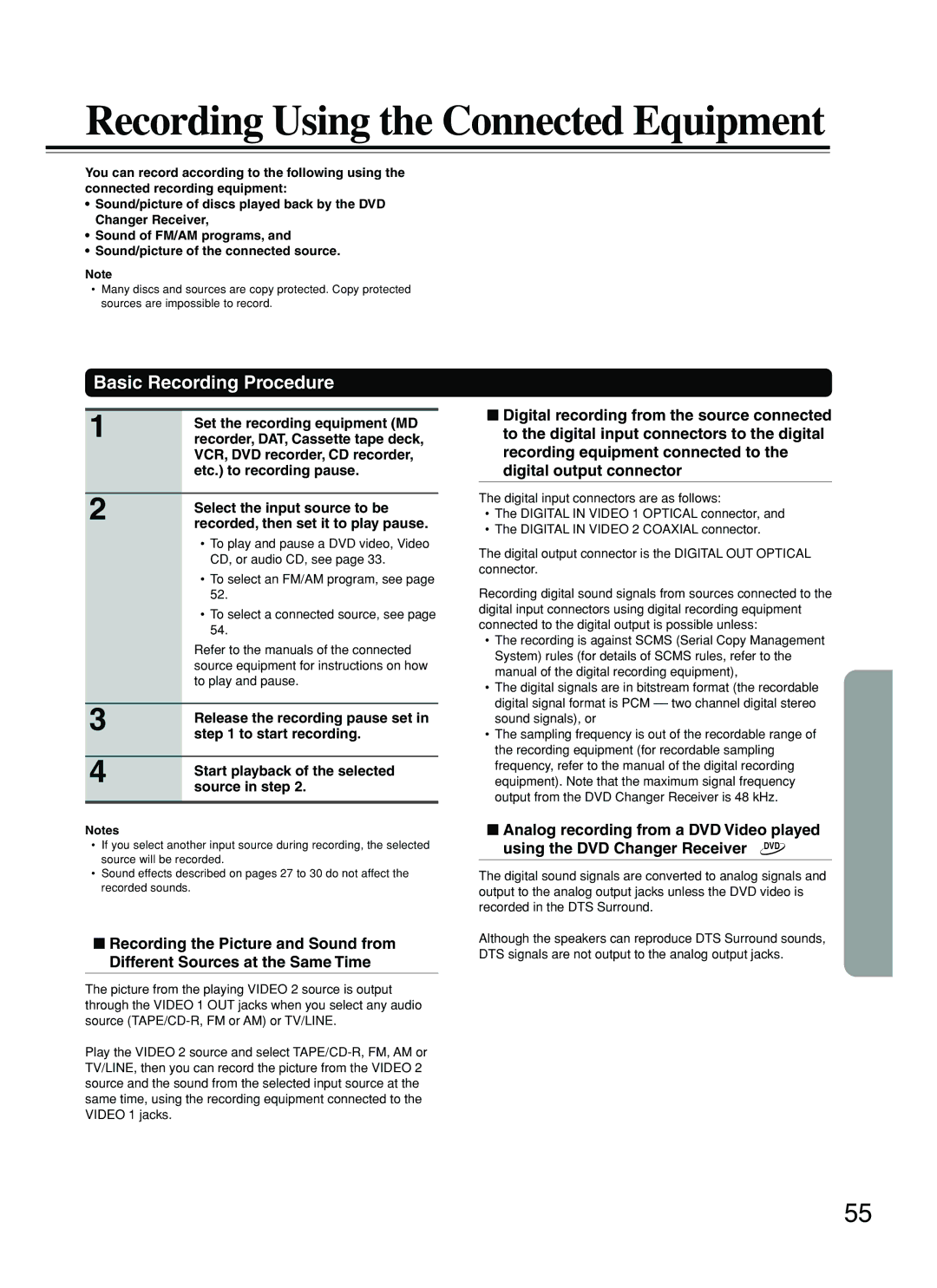
Recording Using the Connected Equipment
You can record according to the following using the connected recording equipment:
•Sound/picture of discs played back by the DVD Changer Receiver,
•Sound of FM/AM programs, and
•Sound/picture of the connected source.
Note
•Many discs and sources are copy protected. Copy protected sources are impossible to record.
Basic Recording Procedure
1 | Set the recording equipment (MD |
recorder, DAT, Cassette tape deck, | |
| VCR, DVD recorder, CD recorder, |
| etc.) to recording pause. |
|
|
2 | Select the input source to be |
| recorded, then set it to play pause. |
| • To play and pause a DVD video, Video |
| CD, or audio CD, see page 33. |
| • To select an FM/AM program, see page |
| 52. |
| • To select a connected source, see page |
| 54. |
| Refer to the manuals of the connected |
| source equipment for instructions on how |
| to play and pause. |
|
|
3 | Release the recording pause set in |
| |
| step 1 to start recording. |
|
|
4 | Start playback of the selected |
| |
| source in step 2. |
|
|
Notes
•If you select another input source during recording, the selected source will be recorded.
•Sound effects described on pages 27 to 30 do not affect the recorded sounds.
■Recording the Picture and Sound from Different Sources at the Same Time
The picture from the playing VIDEO 2 source is output through the VIDEO 1 OUT jacks when you select any audio source
Play the VIDEO 2 source and select
■Digital recording from the source connected to the digital input connectors to the digital recording equipment connected to the digital output connector
The digital input connectors are as follows:
•The DIGITAL IN VIDEO 1 OPTICAL connector, and
•The DIGITAL IN VIDEO 2 COAXIAL connector.
The digital output connector is the DIGITAL OUT OPTICAL connector.
Recording digital sound signals from sources connected to the digital input connectors using digital recording equipment connected to the digital output is possible unless:
•The recording is against SCMS (Serial Copy Management System) rules (for details of SCMS rules, refer to the manual of the digital recording equipment),
•The digital signals are in bitstream format (the recordable digital signal format is PCM
•The sampling frequency is out of the recordable range of the recording equipment (for recordable sampling frequency, refer to the manual of the digital recording equipment). Note that the maximum signal frequency output from the DVD Changer Receiver is 48 kHz.
■Analog recording from a DVD Video played
using the DVD Changer Receiver | DVD |
|
|
|
The digital sound signals are converted to analog signals and output to the analog output jacks unless the DVD video is recorded in the DTS Surround.
Although the speakers can reproduce DTS Surround sounds, DTS signals are not output to the analog output jacks.
55
